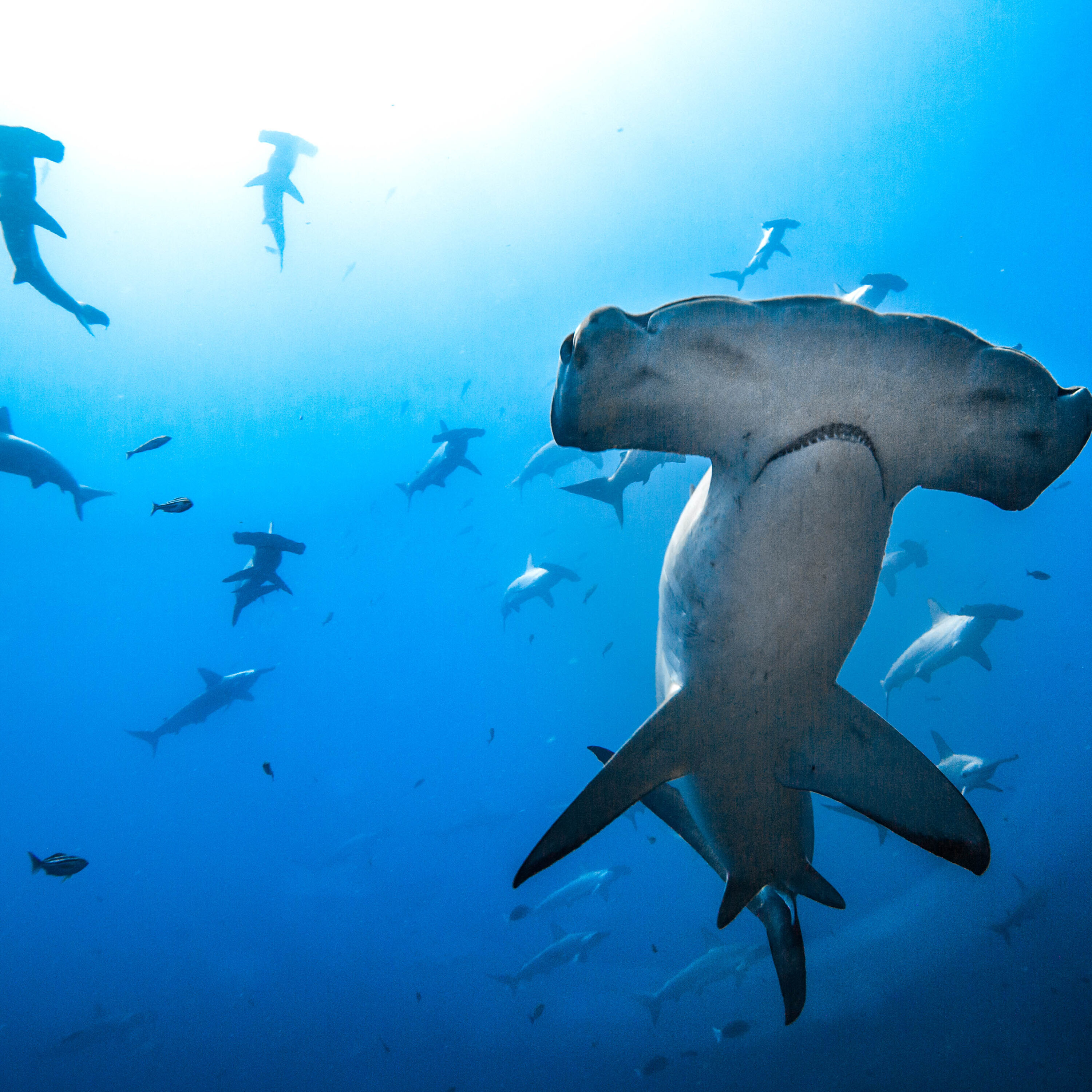Ecological Importance of Sharks: The study that offers a blueprint for ocean health

Hammerhead shark, Mikimoto, Japan © Masayuki Agawa / Ocean Image Bank
26.09.2024
A recent study has found that the sharks that are most impacted by fishing are those that are most needed for maintaining biodiversity and a healthy ocean ecosystem. The study is led by Florida International University, and funded by the Shark Conservation Fund, which receives support from ERF grantee, Oceans 5. It found that the largest sharks of some of the biggest species play an oversized role in healthy oceans, and serve as indicators for overall ocean health.
Besides helping to maintain balance in food webs, sharks feed in offshore waters and bring nutrients back to the reef. Others move nutrients around that are used at the base of the food chain. Sharks can also serve as food for other species and even as scratching posts for fish to remove parasites. Sometimes even their sheer size is enough to scare away prey that could overgraze seagrass that is the foundation of ecosystems.
However, these are also the marine species that are most negatively impacted by fishing. Shark abundance has dropped by 71% for oceanic species in the past 50 years, while populations of the top five reef shark species have been depleted by 63%. The study provides examples of how overfishing by large-scale industrial fisheries, particularly targeting sharks for their fins, has led to the drastic reduction in shark populations worldwide. Currently, the majority of sharks are caught as unintentional ‘bycatch’, (often not released back and sold on as food or animal feed), but the deliberate targeting for meat and fins, and even additional products such as leather, shark liver oil and manta ray gill plates is also an ongoing threat.
The study discusses the need for stricter regulations on shark fishing and better enforcement of existing laws to mitigate these human impacts. Additionally, it advocates for public awareness campaigns to reduce demand for shark products.
However, another key take away from the study was the need to adopt a more holistic approach to shark conservation, including a focus on preserving the role sharks play in marine ecosystems, not merely their abundance. For example, the identification and protection of critical habitats that are essential for shark survival, such as breeding and feeding grounds, is essential for maintaining healthy shark populations and also allowing them to effectively influence the ecosystem. The study also discusses the potential benefits of marine protected areas (MPAs) in safeguarding these habitats.
Lee Crockett, the Executive Director of the Shark Conservation Fund noted that; “The evidence has found that sharks play a more complex and vital role than previously thought. They are not merely apex predators; sharks are ecosystem architects, nutrient transporters, and key players in maintaining the delicate balance of ocean biodiversity. This landmark study serves as confirmation that marine conservationists, philanthropists, policymakers, and the public alike need to recognise that sharks are keystone species that have a now-proven significant effect on marine environments.”